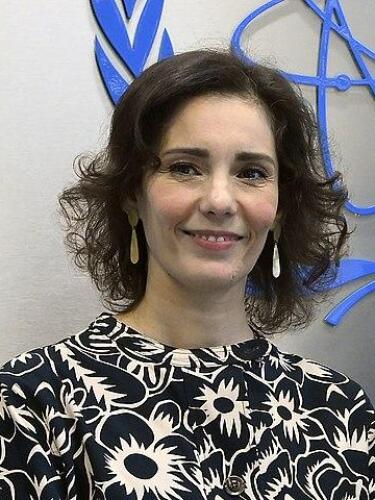A high-ranking official in the Belgian government has resigned in the face of outrage over his decision to allow the Islamist mayor of Tehran to attend an urban policy conference that took place in Brussels in mid-June. The invitation and issuance of visas to Alireza Zakani and his 13-member entourage allowing them to attend an urban policy conference in Brussels prompted the resignation of Pascal Smet, the State Secretary of the Brussels-Capital region. Zakani’s attendance at the summit – at Belgium’s expense — also prompted demands for the resignation of Belgium Foreign Minister, Hadja Lahbib, in the country’s national Parliament. Unlike Smet, Lahbib survived the controversy.
Critics expressed outrage that Zakani, who previously commanded the Tehran University Basij, a sub-branch of the Islamist regime militia, met with Smet and Philippe Close, the mayor of Brussels, while attending the Brussels Urban Summit which took place on June 13-15. Iranian dissidents living in Belgium held rallies in Brussels to condemn Zakani’s visit, while the media extensively covered the controversy.
I regret that some people may have felt intimidated or endangered by the presence of the Iranian delegation.
Zakani’s presence at “Metropolis,” a conference dedicated to confronting challenges of urban life in the 21st century, were contradicted by his role in suppressing the 1999 student protests in Iran, where student protesters were killed and blinded by the militia he led. During the 2022 uprisings, Zakani reportedly enlisted Tehran’s Municipality resources to assist armed groups in suppressing protesters, resulting in injuries, beatings, and arrests. These actions, coupled with his close relationship with Ali Khamenei, have earned him the moniker “the butcher of Tehran.”
The timing of Zakani’s appearance at the conference in Belgium is somewhat of a shock. Thousands of Iranians asked the EU Council to list Iran’s Islamic Revolutionary Guard Corps as a terrorist organization in a demonstration in Brussels on February 20, 2023. They repeated their demands in a demonstration in Brussels on March 20, 2023.
Moreover, Zakani’s appearance in Brussels took place soon after the May 26, 2023 release of Belgian aid worker, Olivier Vandecasteele, who had been held by the Iranian government for 455 days. The Belgian government obtained Vandecasteele’s release by releasing a Assadollah Assadi, an Iranian diplomat who had been convicted of plotting a bomb attack in France. Zakani’s appearance also seemed to contradict the European Union’s recent sanctions against the Basij organization in which Zakani has held numerous positions over the years.
Despite all this, the Belgian government covered the expenses of Zakani’s visit. These issues caused a stir and mutual blaming in several local and national parties and governmental offices.
According to Het Laatste Nieuws, a Belgian newspaper, two unnamed brothers opposed to the Islamist regime who live in Belgium announced that the Iranian delegation filmed them during the Iranian demonstrations in Brussels. These people also announced that after Zakani’s return to Iran, the security forces interrogated and detained their mother in Isfahan. The Brussels Times reported that Iranian officials showed the woman images of her son and asked her “why her sons were protesting and was ordered to tell her sons to stop the protests, threatening her with a 20-year prison sentence if she failed to comply.”
In light of these revelations, the Belgian news outlets dubbed Zakani “the butcher of Tehran” and called the controversy, “Iran Gate.” This rhetoric intensified the pressure on Hadja Lahbib to resign. This pressure increased after Belgian National Television reported that the Iranian delegation had also filmed Darya Safaei, an Iranian-descent member of the Belgian Parliament and an opponent of the Islamist regime.
The Socialist Party’s (PS) parliamentary leader Ahmed Laaouej told LN24 that “she [Foreign Minister] must step aside” due to “people being in danger in Iran because of the visas she granted.” The French-speaking Greens seemed to agree, with party leader Gilles Vanden Burre stating that “the situation is no longer tenable and the Foreign Minister needs to take responsibility.”
Other political parties such as Ecolo, Groen, PS, and Vooruit expressed their dissatisfaction with Lahbib’s actions, emphasizing the need for transparency and the restoration of full confidence.

Hadja Lahbib, Belgian Foreign Minister (Photo by IAEA Imagebank via Wikipedia.)
DEAN CALMA
The foreign minister and prime minister addressed these concerns before the parliament on June 21, 2023. Following her admission of the mistake and apology for granting the visas, the parliament voted in favor of the prime minister remaining in office, averting a potential government crisis and early elections. After attempting to defend her actions, Lahbib was able to keep her job after an apology, declaring, “I regret that some people may have felt intimidated or endangered by the presence of the Iranian delegation. Political decisions must take into account the reality on the ground. I apologize if I did not take this into account enough in my statements.”
This incident and its subsequent reverberations serve as a clear warning for all European and North American governments. “For the Belgian government, from now on it is more difficult to invite Islamic Republic’s officials,” said Saeed Bashirtash, an Iranian political activist who lives in Belgium.
Majid Mohammadi is an Iranian-American sociologist and political analyst residing in the U.S., who contributes opinion and analysis to Persian, Arabic, and English news outlets. He has published dozens of books.

